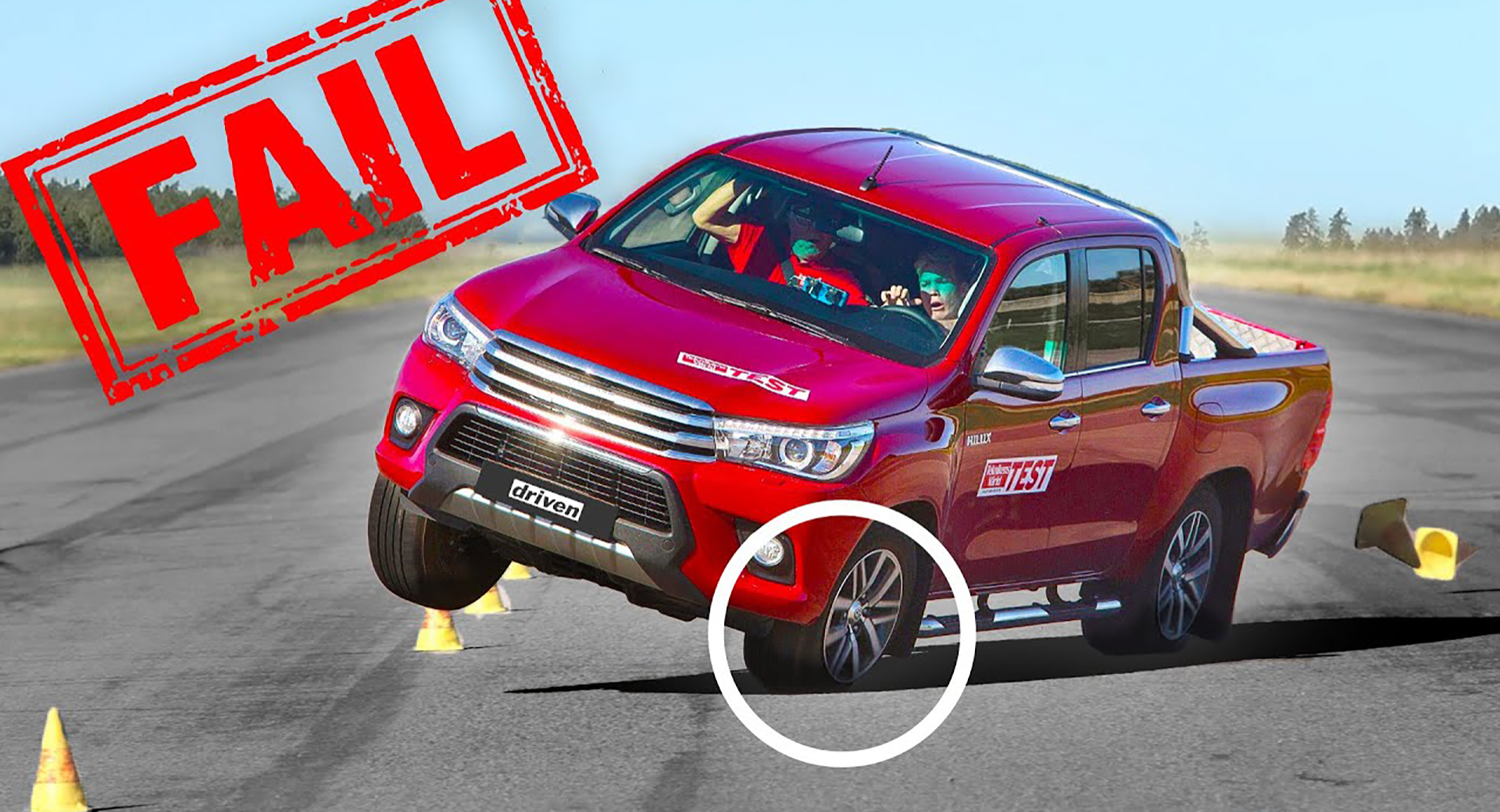The dreaded moose test—we’ve all seen it before. The test designed to simulate an evasive maneuver by swerving around an imaginary moose has seen many failures as of recent, but why is that? That’s exactly what Driven Media answers in their newest video, which explains exactly what factors are at play when it happens.
You’d think that as cars’ technology advanced over the years, so would their ability to maneuver the moose test. However, it’s not so cut and dry. For some background on the test, ideally, it’s performed on a dry surface with the car fully loaded with people and luggage to simulate a worst-case scenario. Most of the tests are done at speeds up to 40-50 mph (64-80 km/h), and while that may not sound like a lot, with the way the test is set up, the vehicles’ occupants can experience a significant amount of G-force.
See Also: Watch How The New Mercedes-Benz S-Class Deals With The Famous Moose Test
So why do modern cars struggle with this test despite having so many technological advancements? It has to do with a number of factors, most of which relate to weight distribution and transfer. For example, the Toyota Hilux‘s suspension wasn’t stiff enough, allowing it to roll too much in the corners. The same was true for the Toyota RAV4 and Jeep Grand Cherokee, the latter of which even sent the tire off the wheel due to the cornering forces.
In the case of cars like the Porsche Macan, its electronic driver aids were too smart for their own good, while for vehicles like the VW Passat GTE/Skoda Superb, their rear-mounted batteries threw off their weight transfer. Probably one of the most surprising failures of the moose test, though, was the new BMW M4 Competition, whose performance-oriented tail-happy nature cause it to spin out.
To watch Driven Media’s full breakdown on the topic, you can check it out in the video below.

is ivermectin a prescription drug – generic ivermectin online buy carbamazepine 200mg online
buy isotretinoin – accutane price linezolid tablet
buy generic amoxil – diovan 80mg pill cheap combivent
order omnacortil 5mg for sale – buy omnacortil 10mg pill order progesterone for sale
monodox price – purchase doxycycline without prescription purchase glipizide pills
buy augmentin 375mg online – cymbalta oral cheap duloxetine 40mg
buy rybelsus 14 mg online – purchase periactin generic periactin drug
buy zanaflex no prescription – hydroxychloroquine drug order hydrochlorothiazide 25 mg sale
buy tadalafil 10mg without prescription – purchase sildenafil sale viagra sale
viagra brand – tadalafil women buy cialis 5mg pill
lipitor online order – buy zestril 2.5mg online cheap buy zestril without a prescription
order cenforce 100mg pill – order metformin pill order glycomet
prilosec online – order atenolol 100mg generic atenolol usa
buy methylprednisolone pill – oral methylprednisolone cost triamcinolone 10mg brand
purchase desloratadine pills – buy claritin medication order dapoxetine 90mg sale
cytotec price – order cytotec 200mcg online cheap order diltiazem 180mg pills
acyclovir 400mg pill – zovirax generic buy generic crestor for sale
order domperidone 10mg online – purchase domperidone pill flexeril 15mg price
domperidone 10mg generic – order sumycin 250mg sale flexeril for sale
purchase esomeprazole capsules – esomeprazole cheap sumatriptan 25mg us
meloxicam buy online – buy flomax for sale buy tamsulosin no prescription
buy valtrex pill – buy valacyclovir online cheap fluconazole uk